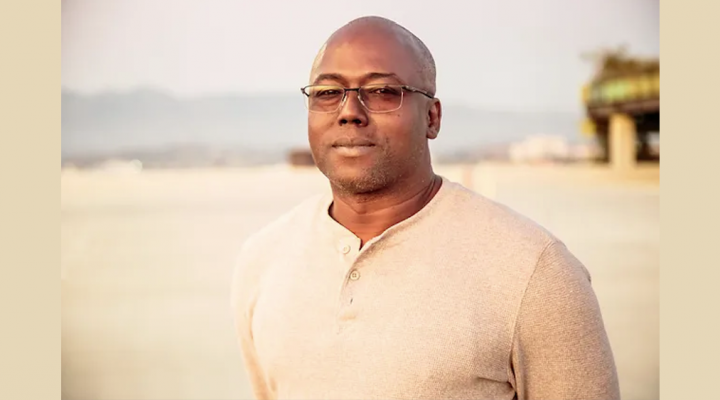Death row exonerees represent some of the most powerful arguments against capital punishment, especially for legislators and others who have no idea how the U.S. death penalty system works, Death Row survivor Herman Lindsey said.
“You’re able to reach people because they are sympathetic with you for what happened to you,” Lindsey said during an “In the Movement” webinar hosted Dec. 14 by Equal Justice USA’s Evangelical Network.
With his release from Florida’s Death Row in 2009, Lindsey became the state’s 23rd exoneree and the 135th in the nation in the modern death-penalty era. He now serves as executive director of Witness to Innocence, a national organization of exonerees and their families dedicated to ending capital punishment and helping exonerees reintegrate into society.
The mere presence of an exoneree can sway opinions more effectively than the words of other death penalty opponents.
One of the group’s most effective practices is organizing speaking engagements for death penalty survivors and attending statehouse abolition debates, Lindsey said. The mere presence of an exoneree can sway opinions more effectively than the words of other death penalty opponents.
“It’s taking advantage of the fact that people are fascinated because they have never met anyone who was exonerated from Death Row. That gets you at least 98% to 99% of that audience’s attention. You can connect with them a little bit better and help form their opinion to say, ‘Yes, I was wrong about the death penalty.”

Sam Heath
Network manager and webinar moderator Sam Heath said he has seen that phenomenon occur in death penalty abolition movements across the country.
“Their stories are some of those crossroads moments for people,” he said. “Especially with pro-death penalty legislators, hearing an exoneree’s story is really a key moment. Death Row survivors and the issue of innocence have been pivotal in every state that has abolished the death penalty in the past 20 years. These stories are changing how people think about and reflect on the death penalty.”
Lindsey’s experience with the death penalty began with a 2006 wrongful homicide conviction based solely on accusations made by a crime suspect seeking to lessen his own sentence. Lindsey spent three years on Death Row until his exoneration by the Florida Supreme Court in 2009. The justices unanimously agreed he had been denied a fair trial.
“It’s a common story,” Lindsey said. “There was no evidence placing me at the scene. There was no evidence tying me to the crime. It was just his testimony the state depended on.”
“I didn’t commit the crime, so, I was like, there’s no way they could find me guilty of it.”
At the time, Lindsey admitted he had no idea that murder convictions and death penalty sentences could be handed down with flimsy evidence or no evidence. “Until I got convicted, I didn’t feel like this was any threat to me. You know, I didn’t commit the crime, so, I was like, there’s no way they could find me guilty of it.”
He was equally surprised when the automatic appeal to the Florida Supreme Court resulted in release. “I thought I was going to get a new trial. I never thought I would get out so soon.”
Heath said the effect of these stories and of reports of racial and economic disparities accounts for Death Penalty Information Center findings that Americans are increasingly turning against capital punishment.
The center’s year-end study noted that only five states — Alabama, Florida, Missouri, Oklahoma and Texas — executed inmates this year and that death sentences were handed down in only seven states: Alabama, Arizona, California, Florida, Louisiana, North Carolina and Texas.
The report also said 2023 was the ninth consecutive year in which fewer than 30 people were executed, with 24, and fewer than 50 defendants were sentenced to die, at 21. Most states (29) have abolished capital punishment.
“For the first time, a Gallup poll reports that more Americans (50%) believe the death penalty is administered unfairly than fairly (47%),” the report says. “Between 2000 and 2015, 51% to 61% of Americans said they thought capital punishment was applied fairly in the U.S., but this number has been dropping since 2016.”
What is increasing is the number of exonerees, the center said. The three exonerations that occurred in 2023 brought the total nationally to 195.
Heath said a lot of people are beginning to ask if it’s at all possible to carry out executions fairly. His answer: “No. We know the death penalty is done in an arbitrary and racist way. Is it done in a fiscally responsible way? We know it’s far more expensive to execute someone than to keep that person alive for the rest of their life.”
And capital punishment has been shown not to deter crime.
“I have not seen anyone get closure from someone being executed.”
Justification for capital punishment usually results from a desire to punish, Heath said. “And that’s when the conversation can get into some really deep places to ask someone, ‘Why is it you feel that’s necessary? Who is that punishment serving?’ Ultimately, it’s often that person who is calling for it feels it will serve them. But it’s not a path to healing at all.”
Often it is the families of victims who push for executions in a mistaken belief it will bring them closure, Lindsey said. “But it’s forgiveness that brings closure. I have not seen anyone get closure from someone being executed.”
State attorneys are another force behind capital punishment and often stoke victims’ families to push for the penalty, he said. “It’s used for political gain and for the victims’ families that want to see death as a punishment. That’s just a mind thing and they’re actually speaking out of hurt. They haven’t thought about it.”
When pressed, victims’ relatives are hazy on how the death penalty works, Lindsey said. He said he will ask them, “‘You want the death penalty? What is the process?’ They can’t tell you the process.”
The organization also heavily promotes another message that any innocent person can end up on Death Row. It’s a theme shared by Lindsey and other exoneree speakers and through a video series titled “It Could Happen to You.”
“It can happen to anyone,” he warned. “You could be walking to the store and something happens and you are the next innocent person on Death Row. You are the next person we are fighting to get out. It doesn’t matter about your background. It doesn’t matter who you know.”


